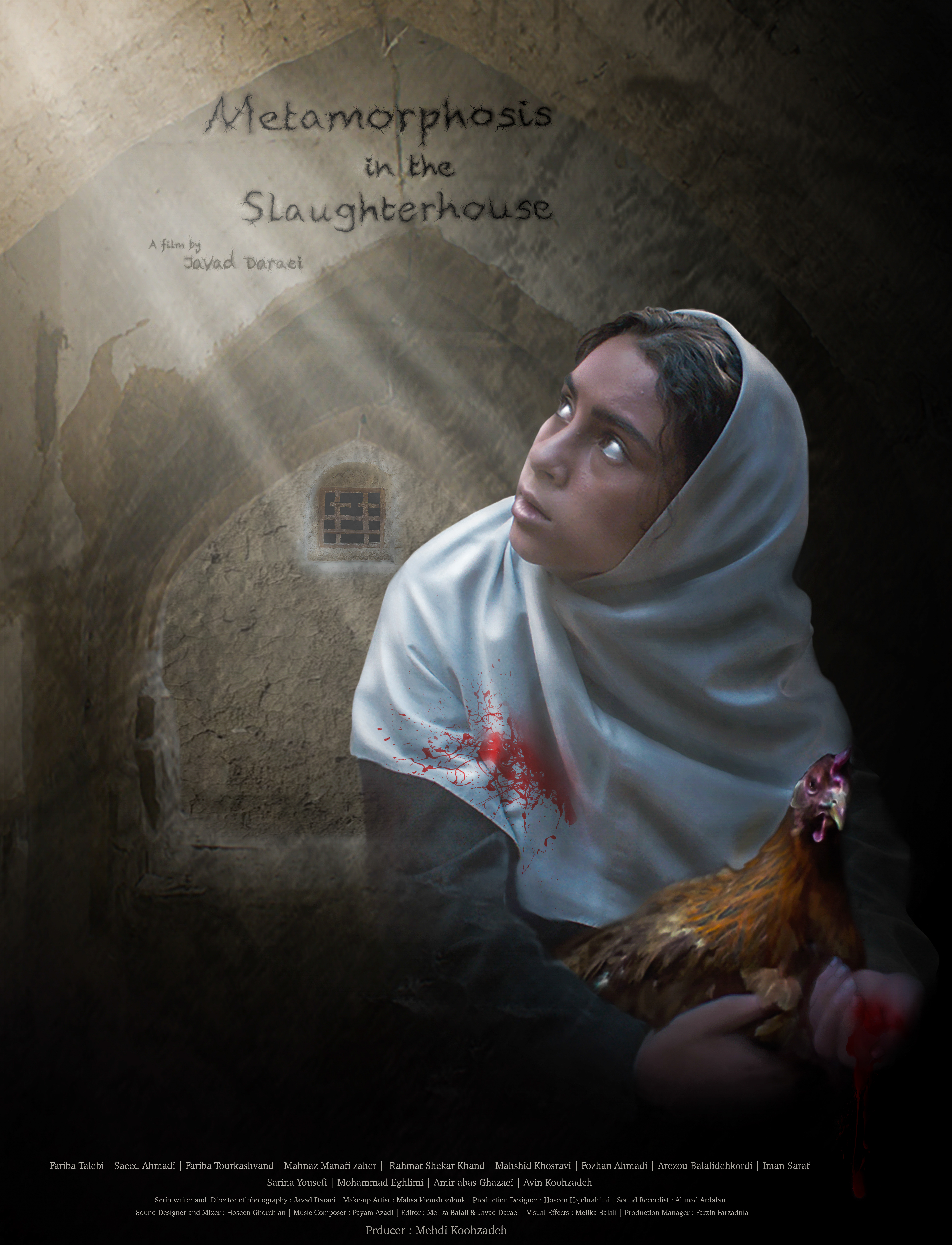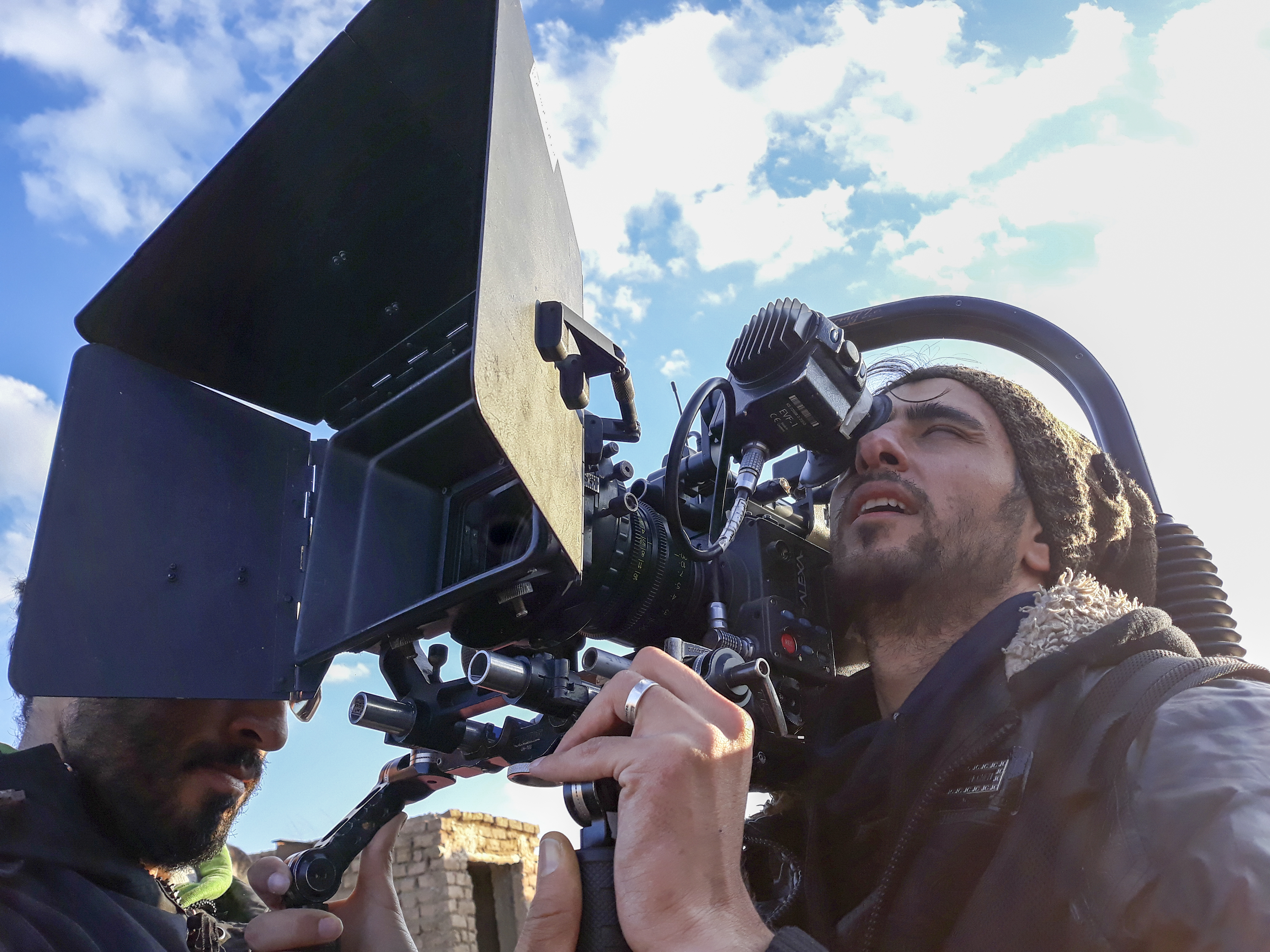Metamorphosis in the slaughterhouse
Shadi, ein kleines Mädchen das in einem iranische Dorf wohnt, wird von den Dorfbewohnern attackiert und gemobbt. Nachdem diese ihre Eltern umgebracht haben, kämpft sie täglich mit den Geistern der Vergangenheit.
Info
Dauer: 1:16:00
Produktionsjahr: 2021
Herkunftsland: Iran
Regie:
Javad Daraei
Cast & Crew
Sarina Yousefi: Shadi
Fariba Talebi: Uncle’s wife
Saeed Ahmadi: Mr. yari
Fariba Torkashvand: Ms. Motamed
Farahnaz Manafizaher: Grandmother
Rhamat Sekar khand: School maid
Foujan Ahmadi: New teacher
Mahshid Khosravi: Principal
Iman Saraf: Shadi’s father
Arezou Balalidehkordi: Shadi’s mother
Mohammad Eghlimi: Hamed
Amir abas Ghazaei: Nazi
Avin Koohzadeh: Hasti
Scriptwriter and Director: Javad Daraei
Director of Photography: Javad Daraei
Music Composer: Payam Azadi
Color Correction: Javad Daraei
Make-Up Crew: Mahsa khoushsolok
Script supervisor: Melika Balali
Sound Crew
Sound Recordist: Ahmad Ardalan
Sound Designer and Mixer: Hoseen Ghorchian
Editor: Melika Balali, Javad Daraei
Visual Effects & Title Designer: Javad Daraei
producer: Mehdi Koohzadeh

B I O G R A P H Y
Javad Daraei
Javad Daraei was born in Khorramabad in 1992. He
was very interested in film and cinema from an early
age and studied at the University of Tehran after
finishing high school. As a student, Javad began making
his first short films, I Don’t Like Her (2016) and Limit
(2017), which were running at numerous festivals
worldwide and were awarded several prizes.
Metamorphosis in the Slaughterhouse is his feature
film debut.

F.A.Q
Q: What problems did you have in making this film?
A: The first problem I had was low budget and the second
problem was the poverty of teamwork in Iran and also the
restrictions created by the Iranian government for
filmmakers.
Q: How do you make low budget films?
A: We do most of the filmmaking work. me and my wife.
This way the costs are very low and our cinema becomes
richer.
Q: What do you mean by most of the works?
A: I wrote the script myself and directed the work myself,
and since I have a great interest in filming, filming I did too.
We did the editing together with my wife. In this film, my wife
is the stage secretary, poster and storyboard designer, and the
film’s advertising designer. She has also applied visual effects.
We didn’t even have the money for a behind-the-scenes
photographer and videographer.
Q: Why did you say that teamwork is weak in Iran?
A: In this and previous films, in addition to the low budget,
there was another reason why I did everything myself,
because the people who came to work did not put energy and
did not work with love. In the film Metamorphosis, the
programmer and assistant director left the filming scene. The
film was called Iranian Production Manager and he did
practically nothing. My wife and I planned in this film and I
managed the work myself. It was very difficult. But it was a
university for me. We didn’t have money for a photographer,
but most of the actors left the scene with two terabytes of
photos. I wanted an actor on stage who either talked to her
husband or designed and they did not focus on the work at all.
7
Q: Is it possible to talk about the problems that the
Iranian government has provided for you?
A: I must say that these problems are different, if you are
Asghar Farhadi, you can easily make films anywhere. But for
young and novice filmmakers like me, filmmaking steps have
not been set for us. You have to build stairs and art must be
the strength of these stairs … But the government, like
Parasite, tends to destroy this ladder that has not been
climbed. I want to make a documentary about the problems
and sufferings of this film.


